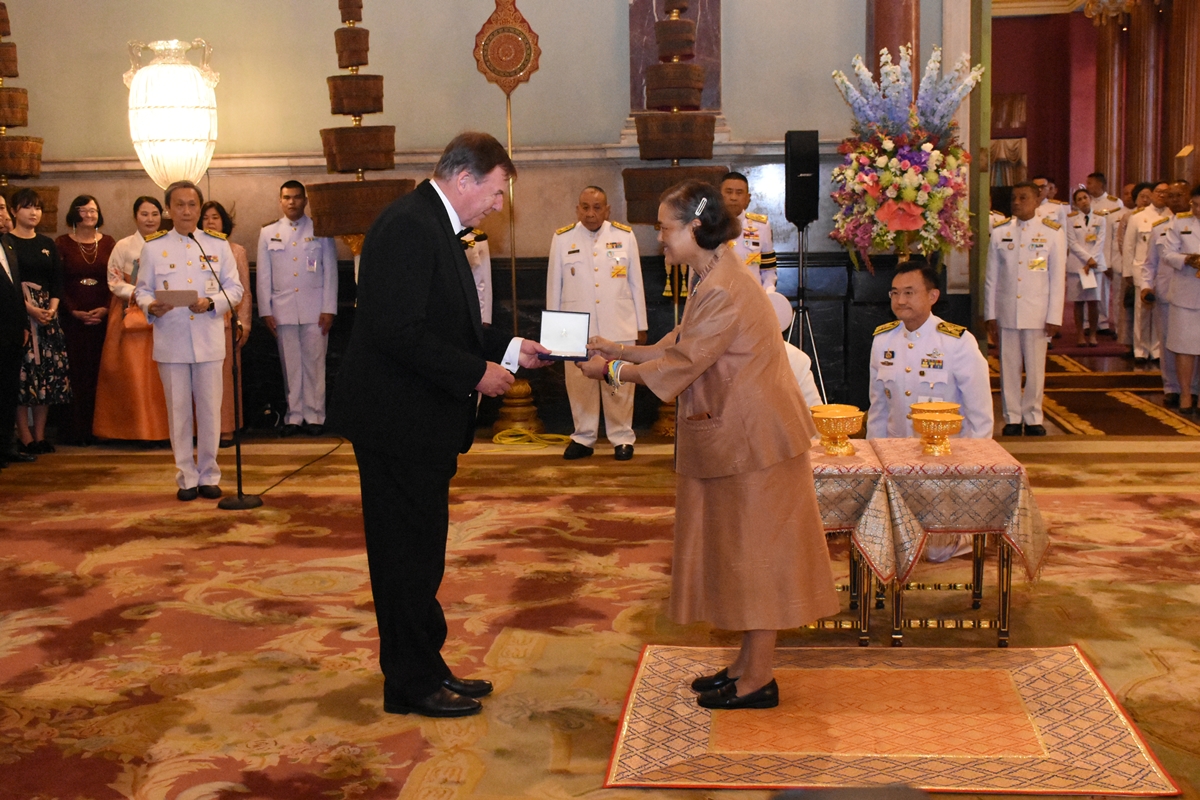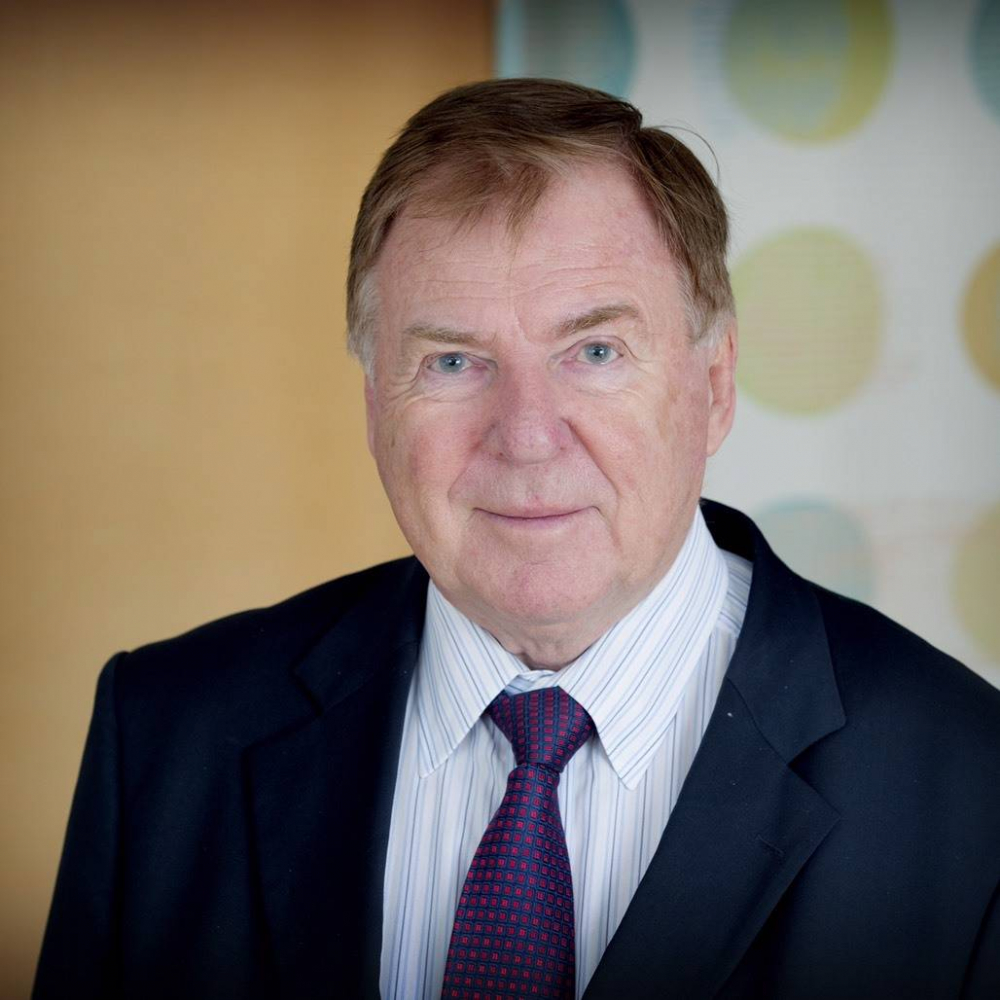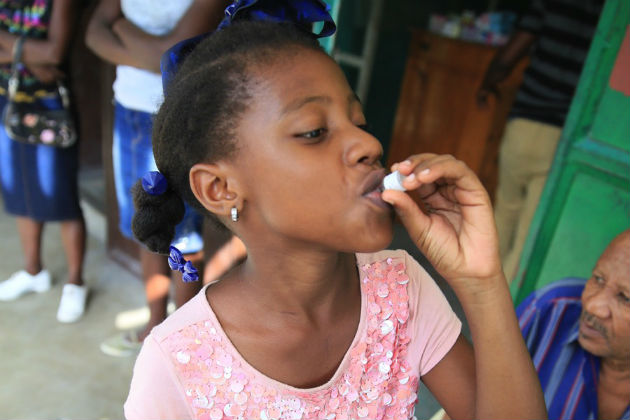
Her Royal Highness Princess Maha Chakri Sirindhorn, as the Representative of His Majesty the King of Thailand, conferred on Thursday 31 January 2019 the Prince Mahidol Award 2018 in the field of Medicine and Public Health on – among three others – the Swedish Professor Jan R. Holmgren from the Gothenburg University Vaccine Research Institute, Sweden. The award is widely recognized as the most significant medical award in the world and many laureates have since received also the Nobel price for their achievements.
Professor Jan R. Holmgren has together with John D. Clemens, International Centre for Diarrhoeal Disease Research, Bangladesh, devoted his medical career to developing a vaccine against cholera that the person can drink. Their development and testing of the vaccine led during the 2000s to the Shanchol vaccine, which offers low-cost prevention against cholera and provides protection for up to five years. Their vaccine has since 2010 been recommended by the World Health Organisation for countries struggling to control cholera.
The other two recipients were Professor Brian J. Druker, M.D., USA, who has made a significant research discovery in the field of targeted cancer therapy. and Professor Dr. Mary-Claire King, Ph.D., USA, who has discovered a gene causing breast cancer. Druker is recognised for his discovery of a prototype drug used for treatment of chronic myelogenous leukaemia (CML) that advances the development of targeted therapy, while King is recognised for identifying the most common and hereditable gene related to breast cancer as well as developing a breast cancer gene detection kit to provide effective screening and monitoring for people at risk.
The award ceremony yesterday, which was widely covered by local and international media, took place at the Chakri Throne Hall, Grand Palace, followed by a dinner party presided over by Her Royal Highness Princess Maha Chakri Sirindhorn, as the Representative of His Majesty the King, in honour of the Prince Mahidol Award Laureates 2018 at the Boromarajasathitmaholarn Hall, Grand Palace.
The award consists of a medal, a certificate, and prize money US$100,000 (Bt3.3 million).

“It is really a very great honour,” said Jan R. Holmgren.
“It is not often that is scientist gets to start a research projects that over the next more than 30 years turns out to be so useful and so beneficial to millions of human beings. This is not entirely altruistic; there’s a great personal pleasure in being able to do that,” added Jan Holmgren, who at the following dinner banquet presided over by Her Royal Highness was seated next to Thailand’s Prime Minister Prayut Chan-o-cha.
“We talked about many things, like the upcoming election,” he said when asked what their seemingly lively conversation had been all about. Pressed for details, he smiled and added: “Oh, we also talked about our shared favorite Netflix series.”
Cholera
Cholera is a severe diarrhea caused by a bacterial infection that can kill within hours if left untreated. The first cholera pandemic lasted seven years from 1817–24 and cost millions of lives. The outbreak began near Calcutta and spread throughout Southeast Asia to the Middle East, eastern Africa and the Mediterranean coast. The world has since suffered 7 pandemics till now costing millions of lives. In countries like Bangladesh there are still about 450,000 cholera cases each year in both urban and rural settings in the country.
“In the early days the injected vaccine against Cholera worked poorly. It did not stimulate immunity in the right place which was in the stomach. the oral vaccine went straight to the stomach and stimulated immunity where it was needed. It was manufactured in Sweden and mostly used for people who had to travel to Cholera infested areas,” he explained.
Prof. Holmgren’s development of a vaccine, which could be taken orally, was a big step forward and his co-laureate Prof. John Clemens played an important role in clinically prove the effectiveness of the first OCV, which stands for “Oral Cholera Vaccine”. The first product was called Dukoral, but it was quite expensive and difficult to administer with a protection of only 50% and the effect only lasted 2 years. Knowing they were on the right track, during the 2000s, Prof. Clemens and Prof. Holmgren produced and tested the new OCV known as Shanchol, which is cheaper and provides a protection for up to 5 years and has 2 years of shelf life.
The two deliberately wanted to transfer the know how to developing countries where the cholera problem was real and while the vaccine was for a while produced in Vietnam, the manufacturing now takes place in India and Korea and soon it will also be produced in Africa.
“There is not much threat that the super pharmaceutical companies will take up research and take out protection on a product like this. Cholera is not anywhere as lucrative as developing a medicine for treatment of cancer,” they laugh.

“Currently, one dose is sold for about 1.50 USD. Each patient needs two doses taken with an interval to be protected. But this price will soon come down to 50 cent for a dose. This will make it affordable to stock pile the product at strategic places around the globe and quickly move the product to an area, where a pandemic is likely to break out – like a few years ago in Haiti, where a high risk of a pandemic was effectively blocked from breaking out.”
One of the interesting discoveries, that Holmgren and Clemens has demonstrated, is the concept of “herd immunity”. They found that they did not need to vaccinate every single human being in a group to prevent an epidemic. If they vaccinated only 60% of the population, the rest of the population became “automatically” also protected, because as the vaccinated people would not spread it, the other people would have much less of a chance of contracting the disease.
Despite the Sanchol vaccine, cholera still takes the lives of around 100,000 people world wide, they say.
“This is a conservative number because many cases are never recorded properly as due to cholera,” says Jan R. Holmgren.
“The worldwide aim is to reduce the occurrence of Cholera with 90% over the next 10 to 12 years. We hope to be able to effectively eliminate the threat of cholera by 2030. It may seem optimistic but it is not a completely unrealistic goal,” John Clemens adds.
The Prince Mahidol Award
The Prince Mahidol Award was established on 1 January 1992 to commemorate the centenary of the birth of His Royal Highness Prince Mahidol of Songkla, the ‘The Father of Modern Medicine and Public Health of Thailand’ and also the father of the late King Bhumbol Adulyadej. The award has the objective to honour His Royal Highness and to recognise individuals or institutions with outstanding contributions in the fields of medicine and public health.
The Prince Mahidol Award was the only award for which HM the late King personally presided over the award presentation ceremony almost every year. The award is run by the Prince Mahidol Award Foundation established in 1991, currently chaired by Her Royal Highness Princess Maha Chakri Sirindhorn.
In the past 26 years, 79 individuals, groups of individuals, and institutions have received the awards from the Prince Mahidol Award Foundation. Only one other Swede has ever received the award, Professor Egon Diczfalusy. Two other award recipients from the Nordic countries are Dr. P.Helena Makela from Finland and from Norway Dr. Tore Godal. There are no laureates from Denmark.
The road to being awarded starts with a nomination that must be submitted by somebody else than the person to be awarded. This nomination must first pass the Scientific Advisory Committee for initial screening. If they pass, the nomination is then forwarded to the International Award Committee, which comprises several world-renowned experts in the fields of medicine and public health, who will consider them and make recommendations to the Foundation’s Board of Trustees. The Foundation’s Board of Trustees makes final approval.
For 2019, the nomination form for the Prince Mahidol Award 2019 can be found at www.princemahidolaward.org. Nominations must be received no later than 31 May 2019.
Prince Mahidol Award Conference
Parallel to the Prince Mahidol Award, the Prince Mahidol Award Conference (PMAC) has been held every year since 2007 – and before than at more irregular intervals. This year, the Conference is currently held in Bangkok, Thailand, from 29 January – 3 February 2019. The PMAC is this year focusing on Noncommunicable diseases (NCDs) which kill 41 million people each year, equivalent to 71% of all deaths globally. The main types of NCDs are cardiovascular diseases (like heart attacks and stroke), cancers, chronic respiratory diseases (such as chronic obstructive pulmonary disease and asthma) and diabetes. More than three quarters of global NCD deaths – 32million – occur in low- and middle-income countries.
The objective of the annual Prince Mahidol Award Conference is to bring together leading public health leaders and stakeholders from around the world to discuss high priority global health issues, summarize findings and propose concrete solutions and recommendations. It aims at being an international forum that global health institutes, both public and private, can co-own and use for the advocacy and the seeking of international advices on important global health issues.
The Prince Mahidol Award Conference (PMAC) is co-hosted by the Prince Mahidol Award Foundation, the Thai Ministry of Public Health, Mahidol University, the World Health Organization, The World Bank, U.S. Agency for International Development, Japan International Cooperation Agency, The Rockefeller Foundation, with support from other key related partners.
The Royal Thai Government allocates an annual budget of around USD 1 million to support the Conference which can be used to support all local costs, including venue, food and facilities, plus some international travel costs for the speakers and participants from developing countries and civil society organizations as well as necessary eskisehir escort pre-conference preparatory workshops.
More information about the life of Prince Mahidol, the father of the late King Bhumipol Adulyadej, is available here: http://archive.princemahidolaward.org/publications/20170205120202.pdf
More information here: https://pmac2019.com/site/conferenceprogram
